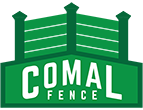Why Is Quality Ranch Fencing Essential?
If you manage a farm or ranch, working with a skilled ranch fencing service is essential for multiple reasons. It typically takes between 100 and 300 linear feet of fencing to fully enclose a backyard, according to Bob Vila, and large properties like ranches require even more fencing. Of course, quantity is not the only factor to consider when it comes to fencing; quality is also vital. Let’s take a closer look at the critical role quality fencing plays on ranch properties.

Tips for Budgeting Your Fence Services
Installing a new fence or repairing an existing one can get expensive if you’re not careful. Getting fencing done right while sticking to your budget takes some savvy planning and decision-making. Use these handy tips when budgeting for your upcoming fence services project to avoid sticker shock.

What Fencing Options Provide the Most Privacy for My Backyard?
Looking to boost your yard’s privacy? Who could blame you? Nobody wants to have everybody walking by and gawking in at what they’re doing! Thankfully, you can choose fantastic privacy fences from fence services to keep other people’s eyes out for good! Here are a few of the most popular and effective options that you might want to try.
Finding a fence construction business in America shouldn’t be too much of a problem for you. According to IBISWorld, you can pick from 319,000 of them. It’s deciding on the right type of gates that can give you pause. Do you go with automatic, manual, or solar-powered? Here are the pros and cons of each.
Automatic Gates
Automatic gates are great in terms of convenience. All you need to do is press a button, and they will open and close. It’s perfect when it’s pouring outside, and you really don’t feel like getting out of your vehicle. They also use a lot of electricity to do the job, so your electric bill might be higher than you like. Also, you could be out of luck when there’s a power outage.
Manual Gates
Manual gates are the easiest to use. You just have to go open and close them. The drawback is that you have to go open and close them which isn’t a whole lot of fun if you’re in the middle of a huge rainstorm or if it’s freezing outside. Then you might wish that you had gone with one of the other options.
Solar Powered Gates
This could give you the best of both worlds. You’ll have electric gates without having to pay a lot for electricity, and you won’t have to worry about manual gates. They store energy, so they can work even when there’s bad weather. This is a great way to save money, but you might have to worry if there’s an extended power outage, however, they also have a backup battery.
The best thing to do is look at your options. Your budget can dictate a lot. The main goal here is to protect your property, so having something will be better than nothing. Talk with a fencing professional and walk through everything with them. They will be able to give you advice on how to get what you need. Then, you’ll be able to feel both satisfied with your purchase and also have a sense of safety and security.
Do you need gates for your property? We’re experienced at installing them for both residential and commercial properties, and we can also install fences. Contact Comal Fence today to learn more.

How Your Business Could Benefit From an Automatic Gate
If you’re a business owner, then every detail of your commercial property matters. You want to create a business site that is both attractive, functional, and safe. Automatic gates can help you accomplish this. If you’re on the fence about whether or not to install an automatic gate for your company, then here are a few benefits you should consider.

How to Choose Proper Fencing Solutions for Your Ranch
When it comes to ranching, securing your land and protecting your livestock is crucial. That’s why your ranch fencing solution is so important. As you start your search for the best ranch fencing services, there are several key factors to consider, depending on the unique needs of your ranch. By evaluating these aspects, you can determine which type of fencing makes the most sense for you.

What Are the Benefits of Fencing for Your Ranch?
Do you own or help run a ranch? If so, you understand how much upkeep is required to ensure the ranch is always functioning as needed. One thing all ranches need is a solid fence to keep certain things in and other things out. Here are some of the benefits of ranch fencing.
Types of Fences to Expect From Fence Companies
Is it time to put a fence up around your home? If so, you may wonder what type of fencing is available for you. From metal to wood, here are some of the fences your local fence companies can offer you.

How to Choose the Right Fence for Your Property
Working with local fence services to create the perfect fence for your property can help you have your dream property. Fences can instantly increase property value. They can also enclose a backyard to make a play area for your kids or keep pets in the yard. The overwhelming number of options available can be stressful. Use these tips to choose the right fence to meet your needs.

What to Expect From Professional Fence Services
Fences provide great security to your residential property. They can also add to the curb appeal based on their design. Here are some things to expect when you hire local fence services.
`

